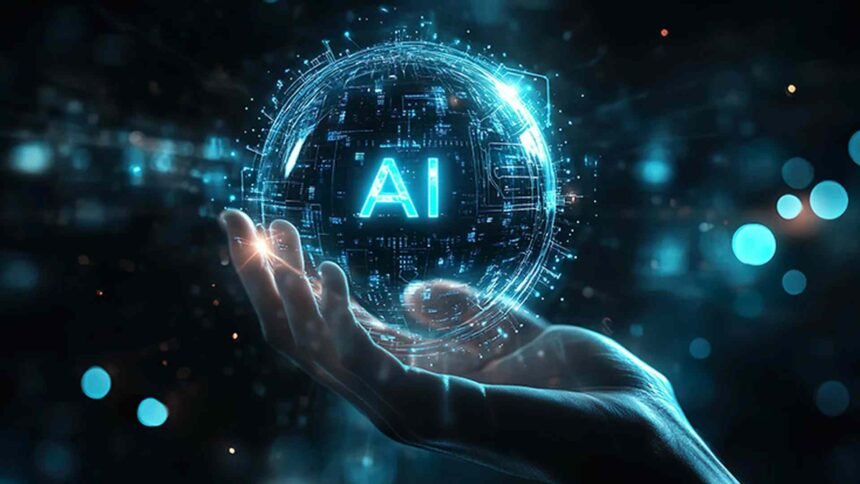Agentic AI is no longer a distant promise in the world of cybersecurity; it’s a growing force that’s rapidly redefining how threats are identified and dealt with in real time. Unlike traditional AI system that rely heavily on pre-programmed responses or human intervention, this AI acts independently adapting, learning, and making informed decisions on its own.
This autonomy is proving to be a game-changer, especially as cyberattacks become more sophisticated, frequent, and stealthy. With organizations across finance, healthcare, and government facing rising digital threats, many are turning to this AI for faster, smarter protection.
Here are five powerful ways agentic AI is reshaping cybersecurity in 2025:
1. Autonomous Threat Detection in Real Time by agentic AI
Agentic AI is giving cybersecurity teams an edge by constantly scanning networks, endpoints, and user behavior without needing manual input. It detects patterns, anomalies, and potential attacks instantly. Unlike conventional security software, which often waits for signature updates or manual reviews, agentic AI can respond in milliseconds.
This proactive defense is especially critical against zero-day vulnerabilities and ransomware. For example, if a previously unseen malware tries to execute on a network, this AI doesn’t wait for a patch or update. It acts immediately—quarantining the file, notifying the system, and starting a chain of defensive measures on its own.
2. Faster Incident Response and Containment
Time is everything during a cyberattack. this AI significantly reduces the gap between threat detection and action. In many cases, it doesn’t just identify a problem but solves it within seconds.
Let’s say an unauthorized login attempt is detected from a foreign IP address. Instead of waiting for an IT analyst to review it, the AI system can automatically block the attempt, disable compromised credentials, and launch an audit trail. This kind of autonomous threat detection minimizes potential damage and buys valuable time for human teams to respond.
3. Predictive Security Based on Behavior
One of the most impressive things about this AI is its predictive ability. By studying historical behavior patterns, it can forecast potential risks before they fully materialize. It’s like having a digital lookout who can anticipate a storm before the clouds appear.
For instance, if the AI notices unusual login behavior, an odd file transfer, or a change in system settings, it flags it as a potential precursor to a breach. Many companies using this approach report a dramatic drop in successful intrusions because problems are often prevented before they escalate.
4. Reducing Alert Fatigue for Cybersecurity Teams
Anyone working in cybersecurity knows how overwhelming constant alerts can be. In fact, false alarms make up a large portion of what security operations centers (SOCs) deal with daily.
Agentic AI helps streamline this process by filtering out false positives and escalating only real threats. It acts as a smart filter, sorting through mountains of data to highlight the most urgent risks. For cybersecurity teams, this translates to less burnout and more time to focus on strategic defense planning.
5. Adaptive Learning From New Threats
Cybercriminals are constantly evolving their tactics. What worked yesterday might not work today. Agentic AI is built to evolve, too.
When it encounters a new type of attack, it adapts. It modifies its detection models, learns from the incident, and updates its protocols to prevent similar breaches in the future. This continuous learning loop means the system gets smarter with each interaction—without needing to wait for a human engineer to update its code.
The Big Picture: A Shift Toward Proactive Security
What we’re witnessing in 2025 is a shift from reactive to proactive cybersecurity. Agentic AI is leading that charge. With its ability to act independently, analyze vast datasets, and make fast, informed decisions, it’s no longer just another tool in the cybersecurity toolkit—it’s becoming the frontline.
That said, it’s not a silver bullet. Human oversight remains essential. AI can act fast, but there are still decisions—especially those involving ethics, privacy, and accountability—that require human judgment.
Agentic AI is transforming cybersecurity into a more agile, responsive, and intelligent defense system. For businesses, governments, and individuals alike, this means better protection, faster responses, and a chance to stay one step ahead in an increasingly digital world.
In a time when the cost of cyberattacks keeps rising and threats are getting harder to detect, agentic AI offers a much-needed line of defense that learns and grows with each challenge it faces.
It’s not just the future of cybersecurity. In 2025, it’s already here.






